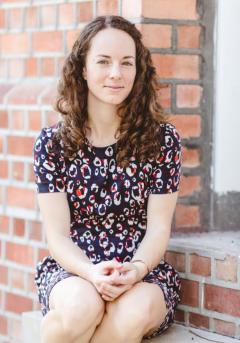Staying the Course: Reflections on the Challenges and Value of Completing a Masters Dissertation During a Pandemic
Lindsey, one of our Master of Public Health (online) students, reflects on her experience of writing a dissertation during the Covid-19 pandemic.
This is a reflection on my third and final-year dissertation, as part of my part-time online Masters in Public Health (MPH) at the University of Edinburgh, which I have recently completed. The part-time MPH offers a choice between a dissertation and a course-work route in the final year and I initially thought I would take the modular route as I found the dissertation challenging during my undergraduate degree. However, I thought it would be a good learning opportunity and if I didn’t try now with the support of a supervisor, that I would always be reluctant to try in the future.
While I was initially worried about my lack of research experience and that I would fall behind and be unable to complete the project, I found I enjoyed the variety and practical work that a qualitative dissertation provides, from recruitment, interviews, transcription and analysis. There were moments of relief after each big section was finished, such as getting ethics approval and completing the interviews.

"I suddenly found that I was too tired at the end of a working day to sit down and write"
Despite having received ethics approval early on, I still struggled to stay on top of the deadlines I had set with my supervisor. COVID-19 has led to fatigue from my work as a physiotherapist due to annual leave restrictions and reduced manpower due to longer sick leaves. Even though I had managed working full time alongside my Masters up until now, I suddenly found that I was no longer coping and that I was too tired at the end of a working day to sit down and write.
I found that taking the time to pause and catch my breath through taking a little break from some of my other commitments helped me to conserve energy. It is important to have things to look forward to when doing your thesis but not to overstretch yourself too!
One motivator that helped me, and I hope will help others embarking on a dissertation, was a piece of advice from a friend. They recommended to just start writing, even if it is not perfect. Pruning and editing can be done later. They also recommended aiming to do 200 words a day, because by the end of the week, I’d already have 1400 words, rather than trying to do large chunk at one go which can seem more daunting.
As libraries and cafés were closed to kerb the spread of COVID-19, arranging a pleasant and ergonomic work space at home made the biggest difference. Being comfortable helped me to be more productive, to persevere with writing and helped to prevent aches and pains from prolonged sitting.
"As the part-time Masters programme was already fully online, there was no disruption to finishing the course"
Thankfully, there were some positive notes of doing my thesis in 2021, because the public had already become familiar with using online video conferencing platforms over the last year, which made the interview process much smoother. Additionally, I work and live overseas and although it was challenging being unable to visit my family due to COVID-19 travel restrictions, the restrictions were beneficial, because it meant that I was not tempted to go on holiday - instead I used the time to do my thesis! Finally, as the part-time Masters programme was already fully online, there was no disruption to finishing the course.
One challenge I faced was not having enough alternative strategies for recruitment in the event that my initial plan submitted to ethics was not successful. I found that after responses had slowed down from the initial recruitment drive, I felt quite helpless. This is an important lesson for others embarking on a qualitative dissertation. Try to make sure there are enough alternative plans for recruitment considered and included in the ethics application from the beginning.
I have also learnt to be aware of my influence in every aspect of the study, that interviews do take practice and reflection assists with learning. Using a reflexive journal assisted me with reviewing my skillset as a research interviewer and enabled me to change the way that I conducted the interviews and the analysis. Through developing these skills, it has enabled me to start the transition to being a researcher and not just a postgraduate student completing an assignment.
Moving forward, my postgraduate programme has given me confidence to pursue research and equipped me with valuable skills for my career, such as leadership, the value of reflection, knowledge for strategic planning, management and improving healthcare services.
Related Links
SLICC: A great opportunity for part time MPH students


